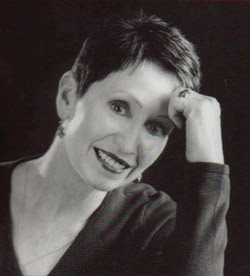
The following post is mostly quoted from a position paper published by Novelists, Inc. (NINC). The subject is one that worries a lot of us, and in my opinion, NINC has come up with a significant and well-informed position on the matter. It satisfies both my worry that my used book sales do nothing to help my publisher or me, and my guilt over the fact that I, too, buy used books, especially the very expensive reference books all writers have shelves and shelves of!
So here are a some of the most cogent passages. Many thanks to NINC and to the SFWA Forum for making this available:
"Novelists, Inc. (NINC) is a non-profit organization of professional published authors dedicated to advancing the interests of working writers. Used book sales, particularly sales of used books through the Internet, have a significant negative effect on the income of publishers, and, therefore, authors, as there is no remuneration to them for any sales of used books. This document is intended to focus attention on NINC's position that the copyright clause of the Constitution of the United States stands for the principle that authors and publishers have the right to share in the profits that others make from the sale of their work. Currently, authors and publishers do no share in the profits made through the sale of used books, a multi-billion dollar enterprise."
"In 2005, in an effort to understand the used-book industry and its scope, the Book Industry Study Group, Inc. (BISG) hired a consulting firm to conduct an in-depth study of used-book sales and the used-book industry in the United States. The study indicated that the negative effect of used-book sales on the book publishing industry is growing rapidly and bears serious consideration."
"NINC holds a firm position in favor of Federal legislation to combat the potentially damaging effect of used book sales on the current and future health of the publishing industry. Such legislation would be grounded in the intent of the language of Article I, Section 8, Clause 8 of the Constitution of the United States, which states that:'
The Congress shall have Power . . . To promote the Progress of Science and useful Arts, by securing for limited Times to Authors and Inventors the exclusive Right to their respective Writings and Discoveries.'"
In short, NINC proposes that a percentage of fees be paid ("Secondary Sale" fees) upon the reselling of any book within two years of its original publication date. A percentage of these fees would then transfer to authors.
Make no mistake, this is a serious issue. New contracts for authors are routinely, these days, being negotiated on past sales. And those past sales are NEW book sales. All those used books that crop up on Amazon before the new book is even available cost their authors money. I like NINC's proposal, because it doesn't ban the selling of used books, or even scold those of us who buy them, but make provisions for the publishers and authors to be compensated. For some writers, such a provision could be career-changing. And for readers, it means the variety of books available to them will be protected. Such a move would go a long way toward offsetting the best-seller, big box store mentality that assails publishing in this decade. I hope it works out.

























